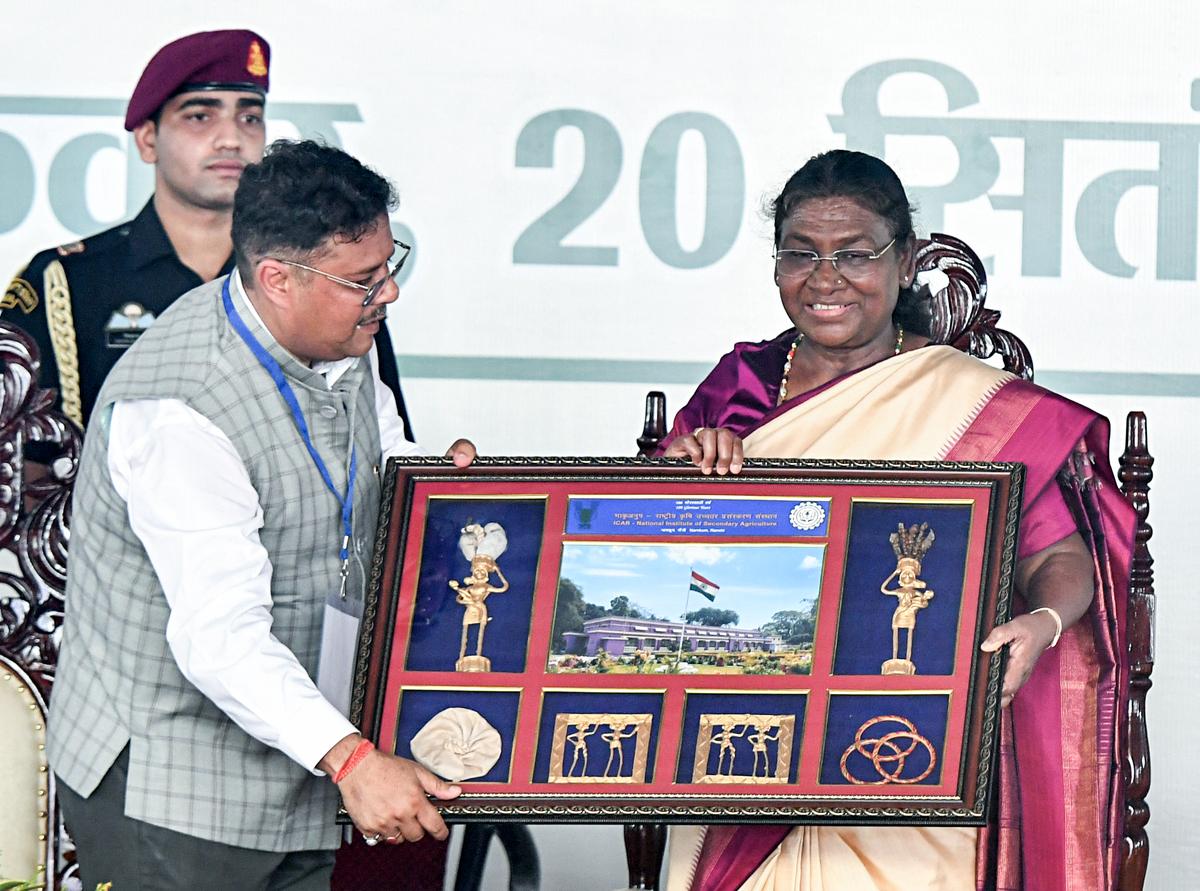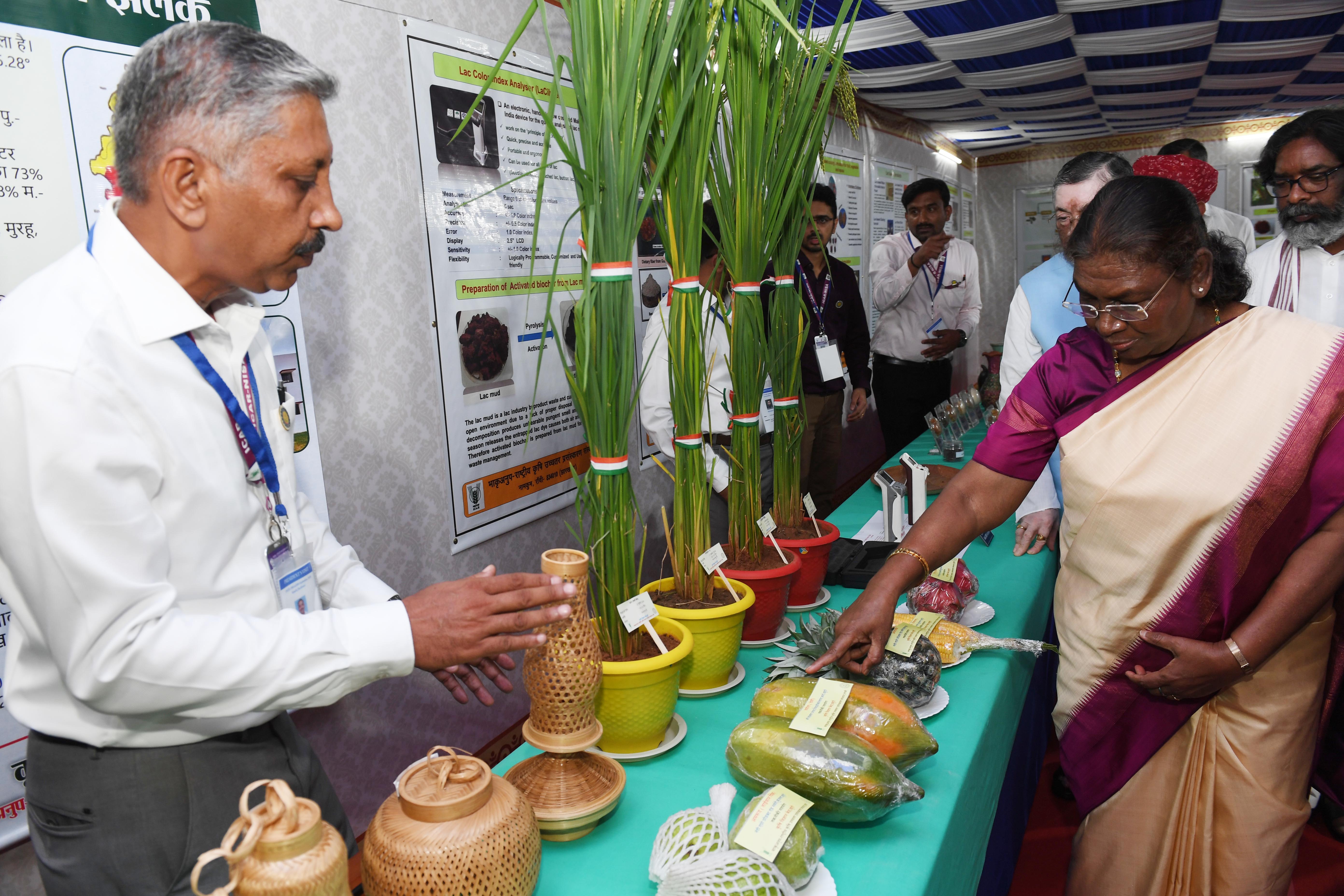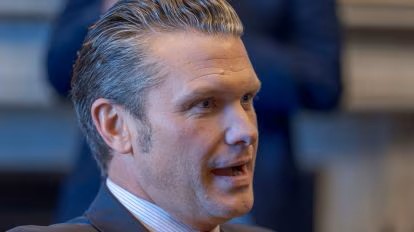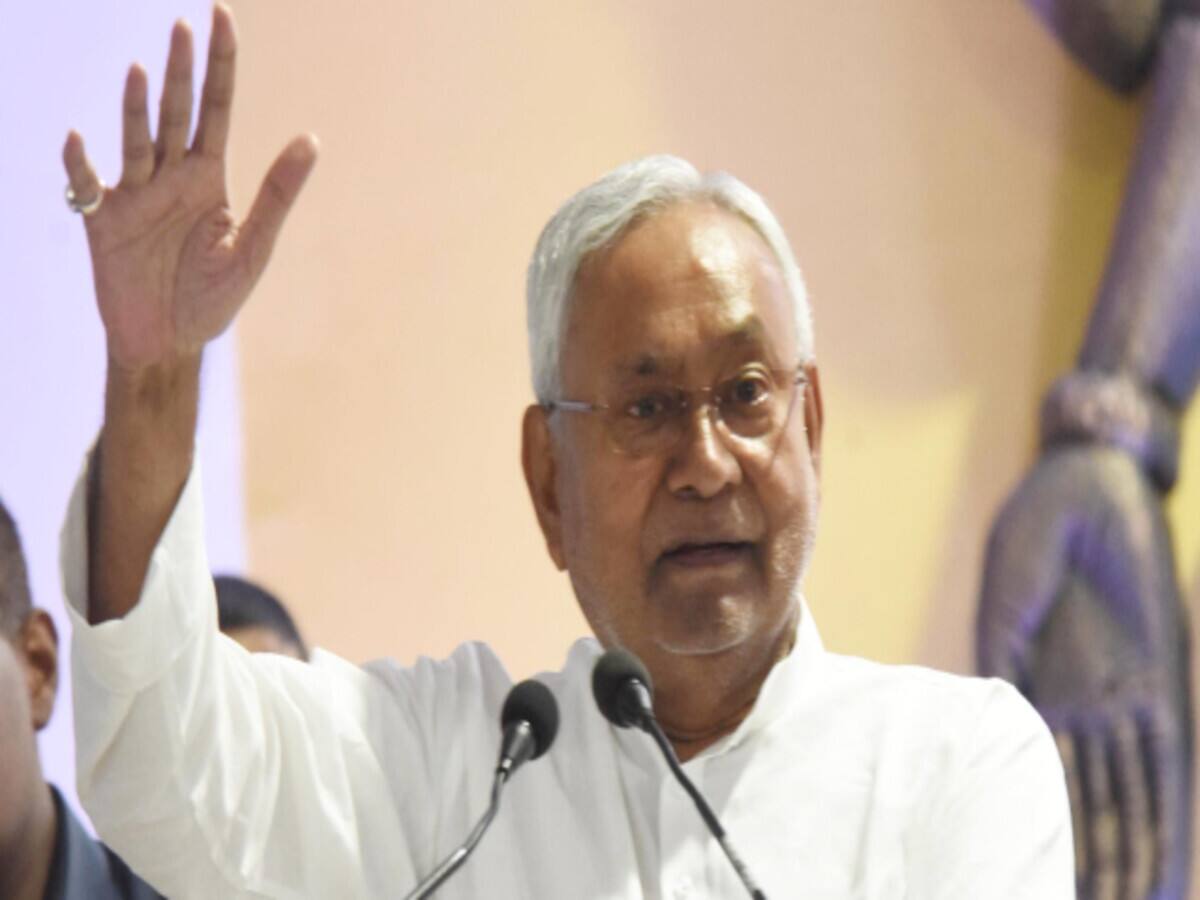During the centenary celebration of ICAR-National Institute of Secondary Agriculture (NISA) in Ranchi on September 20, 2024, President Droupadi Murmu emphasized the importance of lac farming. The event was attended by Chief Minister Hemant Soren and Union Agriculture Minister Shivraj Singh Chouhan.
 In her speech, President Murmu highlighted the pressing challenges faced by agriculture in the 21st century, which include maintaining food and nutritional security, sustainable resource management, and addressing climate change. She pointed out that secondary agricultural activities—such as value addition, beekeeping, and poultry farming—could provide viable solutions to these challenges.
In her speech, President Murmu highlighted the pressing challenges faced by agriculture in the 21st century, which include maintaining food and nutritional security, sustainable resource management, and addressing climate change. She pointed out that secondary agricultural activities—such as value addition, beekeeping, and poultry farming—could provide viable solutions to these challenges.
Murmu stressed that lac farming is a crucial source of income, particularly for tribal communities in India, and that NISA has made commendable progress in this field. However, she called for further advancements in improving the quality and supply chain of lac, especially given its high demand in industries like pharmaceuticals and cosmetics. By enhancing these areas, she suggested that Indian farmers could access better market prices both domestically and internationally.
The President also acknowledged the strides NISA has made in adopting new technologies, such as robotics and artificial intelligence, through its Automation and Plant Engineering Division.
Union Agriculture Minister Shivraj Singh Chouhan echoed Murmu’s sentiments and underscored the need to diversify agricultural practices, highlighting the significant potential of lac cultivation. He announced that 5,000 farmers would receive training in lac farming, an increase from the current 1,500, to boost profitability. Chouhan also advocated for recognizing lac as an agricultural product, allowing farmers to benefit from various government schemes. He further called for an increase in the minimum support price (MSP) for lac.
Chief Minister Hemant Soren added that along with lac cultivation, efforts should be made to keep farmers engaged in agriculture and improve their income through animal husbandry and alternative farming practices.




